Grammar and style pet peeves; don’t we all have them?
A friend sent me a list of someone’s “Top 10 Grammar Peeves” the other day. I agreed with some; others weren’t that big a deal to me. Interesting, what sets off one of us another can brush away with a shrug. I was motivated, though, to come up with my own little list. Granted, most of these are grammar issues – but one or two style snafus snuck in because they also drive me nuts.
1. Me and him
INCORRECT: Me and my partner went to lunch at noon.
CORRECT: My partner and I went to lunch at noon.
Of all the grammar errors going – and there are clearly WAYYYYY too many to list here – this is my biggest pet peeve. “Me” is the object, the receiver of the action. “Me” can never DO anything. “I” is the subject, the doer. Only “I” can do things like go to lunch. How did this horrible construction ever make its insidious way into our regular usage? When I heard David Letterman and West Wing’s John Spencer use it about a week apart from each other, I knew I’d lost the battle on this one. But it still pierces every time I hear/read it.
2. Using apostrophes to create plurals
INCORRECT: The boy’s and girl’s played on the swings.
CORRECT: The boys and girls played on the swings.
I did an entire post about this one.
3. Confusing it’s/its and they’re/their/there and you’re/your
PROPER USE: It’s Tuesday and I checked the mailbox, but your letter is not there yet. I await its arrival so I can share your news with the family when they’re home. I want to get their opinion on whether you’re still the first stop on our vacation.
“It’s” is the contraction for “it is,” just as “you’re” is the contraction for “you are” and “they’re” is the contraction for “they are.” ‘Your,” “their,” and “its” are all possessives. Depending on its use, “there” is an adverb or a pronoun ( in this case, an adverb).
4. Confusing choose/chose and loose/lose
Jane will choose whether to leave her hair loose because last time she chose to wear it up she was a loser in the pageant.
“Chose” is the past tense of “choose;” however “lose” means not to win, while “loose” means not tight, two completely unrelated words.
5. Unnecessary random capital letters
This one just makes you look like a moron. Really. If there’s no reason for the caps, don’t use them.
6. Using random quotation marks
Less moronic than random capitalization, but only by a hair. Again, if there’s no reason for the quotation marks, don’t use them! And what reason could there possibly be to use them below?
Also was asked by the same friend who sent the grammar peeves list about when to use single quotation marks. This is reserved for a quote within a quote – although the Brits appear to reverse this.
AMERICAN USAGE: Eric said, “I told her I didn’t do it, but she said, ‘You’re a liar.’”
BRITISH USAGE: Eric said, ‘I told her I didn’t do it, but she said, “You’re a liar.”’
7. Unnecessary use of .00 when writing monetary amounts; unnecessary use of :00 and lack of periods in a.m. and p.m. when designating time
This is an issue of correctness if you’re following the AP Style Manual, but I think everyone should adopt this style. Those extra zeroes at the end just take up space and make the writing look cluttered.
LESS PREFERRED: The concert begins at 8:00 pm and costs $20.00.
PREFERRED: The concert begins at 8 p.m. and costs $20.
8. There are/there is constructions.
LESS PREFERRED: There are many doctors who advocate drinking less soda.
PREFERRED: Many doctors advocate drinking less soda.
This goes back to my college days. The “there is” construction is not grammatically incorrect, but it makes for weak writing. You will likely find unavoidable occasions for using it – but generally, reworking the sentence will improve it.
9. Literally means something actually happened – it is not a way to describe something figurative.
http://theoatmeal.com/comics/literally
10. Using only a close parenthesis to create a numbered list.
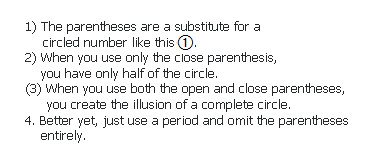 11. Using two hyphens instead of an en or em dash.
11. Using two hyphens instead of an en or em dash.
SLOPPY: We no longer work on typewriters – – double dashes are unnecessary in the day of word processors.
PROFESSIONAL: We no longer work on typewriters — double dashes are unnecessary in the day of word processors.
The use of an em dash (—) or en dash (–) [so called because they are roughly the width of an “n” or an “m”] is really a stylistic preference, as is whether to use spaces before and after, although certain style manuals indicate that no spaces before and after an em dash is correct. Using one or the other in place of double dashes is the sign of a professional, versus a lazy writer or, worse, typesetter.
Laura
__________________
We welcome and encourage your thoughtful, courteous comments below.
__________________
Visit the Write | Market | Design Facebook page to meet other authors and aspiring authors who have a sincere interest in writing, publishing, and selling the best books they can. And if you need a self-publishing consultant in your corner for anything from advice on structure to developing a marketing strategy, drop us a note at MarcieBrock@WriteMarketDesign.com or give us a call at 602.518.5376!

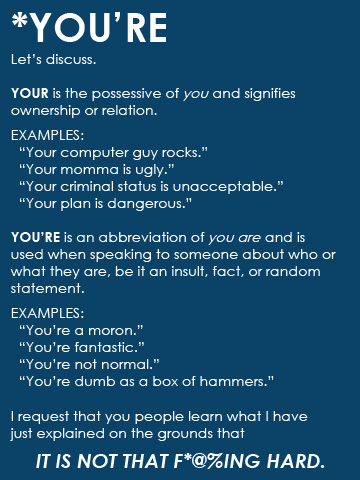
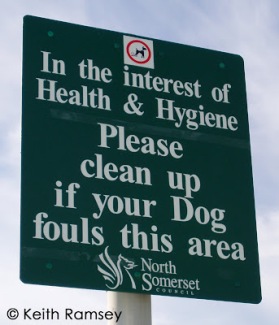
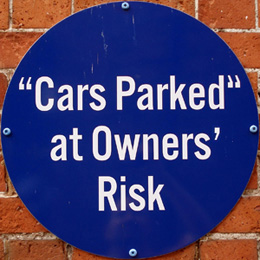

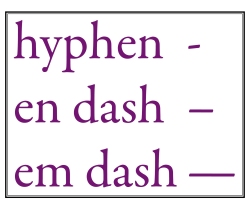



 ____________________
____________________




















